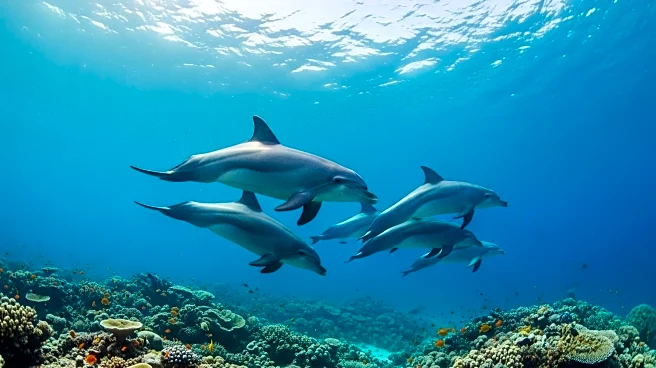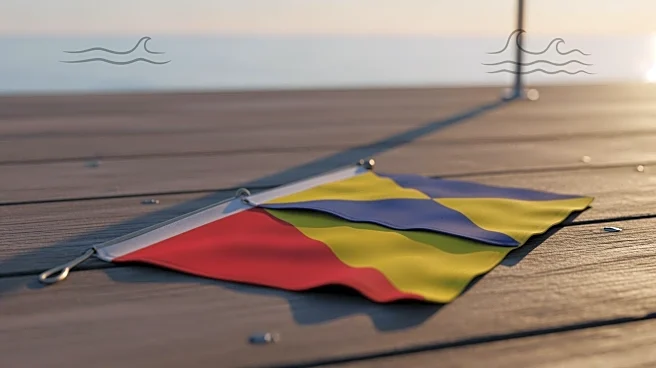What's Happening?
Campaigners have condemned a recent hunt in the Faroe Islands where 285 pilot whales, a species of oceanic dolphins, were killed in a single day. The hunt, documented by Sea Shepherd volunteers, included pregnant females and young calves, raising concerns about the true toll of the event. Despite warnings from Faroese health authorities against consuming whale meat due to health risks, the practice continues, driven by commercial motives. Local municipalities have rejected further meat supplies, yet meat and blubber are still being distributed and sold online and in restaurants.
Why It's Important?
The continuation of dolphin hunts in the Faroe Islands highlights ongoing ethical and environmental concerns. The practice, criticized for its cruelty and commercial motivations, poses significant risks to marine biodiversity. The consumption of whale meat, despite health warnings, underscores the need for stronger regulatory measures. The international community, including conservationists and animal rights activists, may increase pressure on the Faroese government to end these hunts, potentially influencing global policies on marine conservation.
What's Next?
Campaigners are calling for an immediate end to the practice, which they argue is driven by greed rather than tradition. The Faroese government may face increased scrutiny and pressure from international conservation groups to halt the hunts. Future actions could include diplomatic efforts or legal challenges aimed at protecting marine life and enforcing stricter regulations on whale meat consumption.








